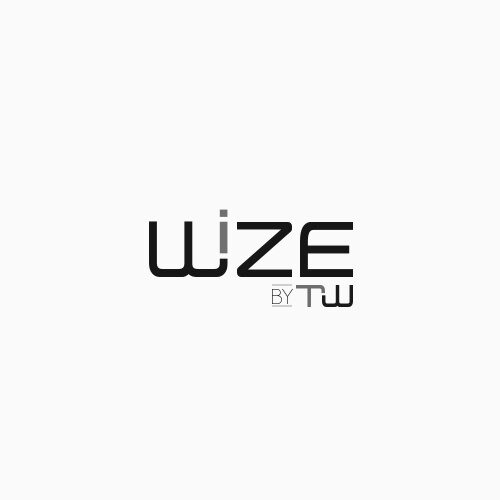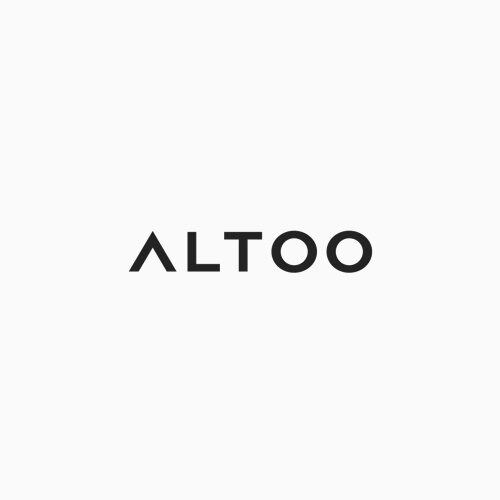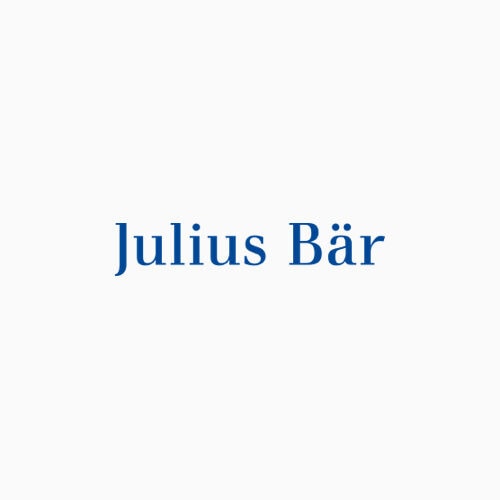Julius Baer experts say entrepreneurs and smaller fortunes can use hybrid and virtual family offices to manage their assets, governance, and legacy.

Switzerland
Switzerland’s diversity is both cultural and institutional, with four national languages and a reputation for legal stability, discretion, and financial strength. For family offices and global investors, it offers more than opportunity: it provides a resilient, future-ready base for wealth structuring, legacy planning, and cross-border operations.
Table of Contents
Introduction
Evaluation categories
Resources
Key numbers
FAQ

Introduction
Europe’s land of milk and honey
Switzerland is uniquely positioned at the heart of Europe, bordered by Germany, France, Italy, Austria, and Liechtenstein. Its location, combined with a multilingual population and deep-rooted cultural heritage, creates a globally minded environment that appeals to international families and institutions. In addition to German, French, and Italian, Romansh is also an official language, reflecting the country’s distinctive blend of traditions.
The country operates under a federalist system with three levels of government: federal, cantonal, and municipal. Each of its 26 cantons holds significant autonomy, contributing to a decentralised and democratic framework. This structure supports legal clarity, administrative efficiency, and regional flexibility. Switzerland’s liberal economy, political continuity, and strong integration with global markets make it a preferred jurisdiction for establishing long-term operations and managing international wealth.
Notable
Switzerland is internationally recognised for its political neutrality, economic stability, and strong legal protections for private wealth. While traditional banking secrecy has been phased out to comply with international transparency standards, the country continues to uphold a culture of discretion through strict professional confidentiality and data protection laws. Its central location in Europe offers efficient access to international markets, supported by a highly skilled, multilingual workforce that serves a diverse global client base.
People to know
These are experts from our network who deeply understand specific topics or subject matter, but can also help navigate the local ecosystem with network, connections, insights, services, and more.
For bespoke advisory services, Simple’s family office solutions combine best-practice knowledge with the latest thinking to deliver solutions that solve the most complex challenges. Our senior advisors have decades of experience, enabling us to advise across all areas and family office themes.
Enquire NowEvaluation categories
1. Tax regulations & incentives
Switzerland offers a highly competitive tax environment for family offices, combining low federal corporate income tax rates with potential wealth tax exemptions on select asset classes, depending on the canton. While there is no federal inheritance or gift tax, many cantons apply their own—though exemptions are often available for transfers within the family. Special regimes, such as lump-sum taxation, remain available in certain cantons for qualifying high-net-worth individuals, offering simplified and potentially lower tax burdens. Additional federal deductions, including those for charitable giving, further support efficient planning. With one of the world’s most extensive double taxation treaty networks, Switzerland enables robust international tax structuring. Combined with its political stability and deep financial expertise, the jurisdiction continues to be a leading base for family offices managing global wealth.
Switzerland imposes a flat federal corporate income tax (CIT) rate of 8.5% on net profit after tax. In addition, there is no corporate capital gains tax at the federal level. When combined with cantonal and communal taxes (each set independently) the total effective corporate tax rate typically ranges from approximately 11.9% to 21.6%, depending on the canton. This decentralised approach contributes to Switzerland’s overall tax competitiveness compared to other European jurisdictions and allows for strategic tax planning when choosing a location for holding companies, investment vehicles, or family office entities.
Switzerland levies a wealth tax at the cantonal and municipal levels on both individuals and legal entities, based on their worldwide net worth. While rates and thresholds vary by canton, some jurisdictions offer exemptions or preferential treatment for specific asset classes, such as business holdings or owner-occupied real estate. These allowances can be especially relevant for family offices with operating entities or concentrated asset structures.
Switzerland does not impose inheritance or gift taxes at the federal level. However, many cantons apply their own taxes on these transactions. Exemptions and reliefs are commonly available, particularly for transfers between direct family members, making intra-family succession planning both flexible and jurisdiction-specific.
Some Swiss cantons offer special tax regimes, such as lump-sum taxation for qualifying high-net-worth individuals and families. Under this regime, taxes are assessed based on estimated living expenses in Switzerland rather than declared global income or wealth. While not available to Swiss citizens or those engaged in gainful employment within Switzerland, this approach can result in significantly lower tax liabilities for eligible foreign residents and is often used within broader family office planning structures.
Switzerland offers a range of federal tax deductions, including those for charitable contributions, which can help reduce the overall tax liability for family offices. These benefits often apply to qualifying legal structures commonly used in wealth planning, such as holding companies and philanthropic foundations. In addition, Switzerland maintains an extensive network of double taxation treaties with jurisdictions worldwide. This network supports efficient cross-border structuring and provides valuable tax planning opportunities for internationally active family offices.
2. Legal & regulatory structures
Switzerland’s legal and regulatory environment is well-suited to the needs of family offices, offering a range of flexible and protective structures such as companies, foundations, and trust arrangements (often governed by foreign trust law). The jurisdiction is known for strong legal certainty, confidentiality protections, and robust asset safeguarding mechanisms, all of which support long-term wealth preservation and governance. The regulatory landscape is both sophisticated and pragmatic. While not overly burdensome, it ensures that family offices operating in regulated capacities adhere to high standards of compliance, particularly in areas such as anti-money laundering and fiduciary oversight. This balance makes Switzerland a trusted base for families managing complex, cross-border assets.
Family offices in Switzerland can operate as either single-family offices (SFOs) or multi-family offices (MFOs), depending on their ownership structure and scope of services. SFOs are private entities dedicated exclusively to managing the wealth and affairs of one family. They typically offer highly personalised services, including investment management, tax optimisation, estate planning, and philanthropic coordination.
MFOs, by contrast, serve multiple unrelated families. By pooling resources, they offer access to institutional-grade investment opportunities, specialist expertise, and operational efficiencies. While services may be similar to those of an SFO, the shared structure of an MFO can deliver meaningful cost advantages and broader service coverage, particularly for families with smaller operating budgets or more diverse needs.
Family offices in Switzerland can establish a Private Trust Company (PTC) to serve as a dedicated corporate trustee for one or more family trusts. A PTC enables families to retain oversight and influence over their trust structures while benefiting from the governance, flexibility, and confidentiality of a private corporate trustee. This model is particularly valuable for families with complex intergenerational or cross-border trust arrangements, as it allows trusted advisors and family members to sit on the board and align fiduciary decisions with long-term family objectives.
Another structuring option is the Family Investment Company (FIC), typically established as a private limited company. An FIC can hold and manage a broad range of assets, including financial investments, real estate, and operating businesses. It offers a flexible and tax-efficient framework for asset protection and intergenerational wealth transfer. Governed by Swiss company law, FICs can be tailored through bespoke shareholder agreements and share class structures to reflect the family’s governance, succession, and control preferences.
A common structuring vehicle for family offices and professional advisory entities is the Limited Liability Partnership (LLP). This model allows partners to benefit from limited personal liability while maintaining the operational flexibility of a partnership. LLPs are frequently used in professional service contexts and can be structured to include multiple family members, trusted advisors, or even external investors. With clearly defined rights and responsibilities under partnership agreements, LLPs offer a collaborative yet protective framework for managing shared ventures and pooled investments.
3. Economic & political climate
Switzerland offers an unparalleled combination of economic strength and political stability, making it a prime location for family offices seeking long-term security. Its history of neutrality, low public debt, and consistent policymaking create a predictable environment for wealth preservation and business continuity. The Swiss Franc is widely regarded as one of the most stable and trusted currencies globally, often used as a hedge in uncertain times. In parallel, Switzerland’s commitment to innovation, strong rule of law, and competitive business environment reinforce its status as a leading jurisdiction for international investment and family office operations.
Switzerland’s constitutional commitment to neutrality and its deeply rooted democratic traditions contribute to its reputation as one of the world’s most politically stable nations. Strong institutions, respect for individual rights, and a well-functioning legal system provide a dependable environment for long-term planning and intergenerational wealth management.
The country’s federal structure ensures local autonomy across its 26 cantons, promoting civic participation and policy responsiveness. Its unique system of direct democracy further reinforces transparency and public trust, enabling Switzerland to remain stable even during periods of global uncertainty. For family offices, this combination of legal certainty, institutional resilience, and geopolitical neutrality offers a strong foundation for cross-border wealth preservation and governance.
Switzerland’s economic resilience and strong international relationships provide a stable foundation for family offices with global interests. Its longstanding neutrality enhances its reputation as a safe haven for capital, while favourable tax policies, a well-regulated financial system, and a highly skilled workforce make it an attractive base for cross-border wealth management.
For families seeking to establish a European presence, Switzerland combines operational efficiency with legal certainty and reputational strength. These qualities have positioned the country as a leading global hub for sophisticated family office services.
Switzerland’s strong international orientation is reflected in its extensive network of free trade agreements, including bilateral agreements with the EU and membership in the European Free Trade Association (EFTA). These agreements expand market access for Swiss-based entities, enabling family offices with operating businesses or international holdings to engage more efficiently across borders.
Lower tariffs, streamlined regulations, and reduced barriers to trade enhance cross-border investment flows and reduce operational friction. For family offices, this translates into greater flexibility when managing international asset structures, direct investments, and family-owned enterprises—supporting long-term growth beyond the Swiss market.
4. Services & talent access
Switzerland’s reputation as a global financial center is supported by its deep bench of institutions offering highly specialised services for family offices. From private banks and asset managers to fiduciary firms and tax advisors, the Swiss financial ecosystem is defined by its discretion, regulatory reliability, and multigenerational expertise. This concentration of providers enables family offices to access tailored solutions for complex cross-border wealth planning, investment management, and governance needs. The strength of this ecosystem is reinforced by Switzerland’s world-class education system and competitive labor market. With a talent pool well-versed in finance, law, and international wealth structuring, family offices benefit from consistent access to professionals capable of managing sophisticated and evolving mandates.
Switzerland’s position as a global financial hub is underpinned by its advanced infrastructure, political stability, and ongoing commitment to financial innovation. The country hosts a broad spectrum of financial institutions—from private banks and asset managers to insurers and fiduciary providers—each equipped to meet the distinct requirements of family offices.
A strong, transparent regulatory framework aligned with international standards provides a secure environment for financial operations. This level of oversight enables family offices to navigate the Swiss financial system with confidence, whether managing investments, structuring entities, or engaging in cross-border transactions.
Switzerland’s immigration framework is structured to attract highly skilled professionals, including those in finance, legal, and advisory roles critical to family office operations. The country offers a range of visas and residence permits for non-citizens seeking to work, invest, or establish a business in Switzerland, with streamlined pathways available for EU/EFTA nationals and selectively for third-country nationals.
This openness to international talent supports the recruitment of top-tier professionals, enabling family offices to access a diverse and specialised workforce. Combined with Switzerland’s high standard of living and professional ecosystem, this makes it an attractive destination for global talent and family office leadership alike.
Switzerland’s education system is internationally recognised for its dual emphasis on academic excellence and vocational training. This approach produces a workforce that is both highly educated and practically skilled—particularly in fields critical to the financial services sector, including finance, law, and wealth management.
For family offices, this ensures reliable access to professionals with the technical expertise and operational understanding required to manage complex wealth structures, regulatory obligations, and cross-border investment strategies.
Switzerland’s workforce is both highly skilled and culturally diverse, with multilingualism serving as a distinct advantage in a globalised financial landscape. The country has four official languages—German, French, Italian, and Romansh—reflecting its deep regional diversity and adaptability. This linguistic breadth enables family offices to operate fluidly across borders and engage seamlessly with international clients, partners, and service providers.
Beyond its national languages, English is widely spoken and functions as the primary business language in many sectors, particularly within finance and wealth management. This makes Switzerland especially well-positioned for family offices managing multi-jurisdictional assets or interacting with globally dispersed stakeholders.
5 Culture & lifestyle considerations
Switzerland consistently ranks among the top countries globally for quality of life, offering a unique blend of natural beauty, cultural depth, and economic security. From the Swiss Alps and crystal-clear lakes to vibrant cities and charming villages, the country’s landscapes provide an exceptional living environment for residents and a serene backdrop for visiting families. Beyond its scenery, Switzerland is known for its clean and well-managed urban centers, world-class healthcare, and a robust education system. A strong economy, low crime rates, and a high degree of personal safety make it an ideal location for family offices and wealth-owning families seeking long-term residence, operational stability, and lifestyle excellence.
Switzerland’s cultural landscape is shaped by its four official languages—German, French, Italian, and Romansh—which together reflect a deep and varied national identity. This linguistic and regional diversity gives rise to a rich tapestry of traditions, arts, architecture, and cuisine, offering a dynamic cultural experience for both residents and international visitors.
For family offices based in Switzerland, this cultural depth provides more than just lifestyle value. It creates opportunities to engage meaningfully with local communities, foster long-term relationships with regional partners, and build a deeper understanding of the country’s social and historical context—all of which can support more thoughtful and locally attuned decision-making.
Switzerland’s natural beauty is among the most iconic in the world, defined by the dramatic peaks of the Alps, serene lakes, and unspoiled countryside. These landscapes offer more than scenic value—they support a lifestyle rich in outdoor activity, wellness, and balance. Year-round opportunities for skiing, hiking, cycling, and boating make the natural environment an integral part of daily life.
For family offices, this setting enhances quality of life, supports healthy work-life integration, and contributes to Switzerland’s appeal as a base for long-term residence. The country’s natural surroundings foster not only personal wellbeing but also a sense of continuity and rootedness for families investing across generations.
Switzerland’s consistently high quality of life is rooted in its commitment to public wellbeing, institutional excellence, and environmental stewardship. The country offers clean and well-managed cities, world-class healthcare, and a highly regarded education system, all supported by a strong economy and low crime rates.
For family offices and wealth-owning families, this creates a safe, secure, and enriching environment to live and operate in. Access to top-tier healthcare and international schooling, along with abundant cultural and recreational opportunities, makes Switzerland not only a stable jurisdiction for managing wealth—but also a highly desirable place to build a legacy across generations.
Resources
Service Providers

WIZE by TeamWork 
Switzerland
Portfolio Management
The Swiss all-in-one Wealth & Asset Management solution with an integrated portfolio management system including 200+ custodian automatic feeds for multi-asset consolidated reporting.

Altoo 
Switzerland
Consolidated Reporting
The Altoo Wealth Platform provides simplicity and control to wealthy private individuals and family offices, by aggregating and monitoring wealth data in an intuitive way.

Julius Baer
Switzerland Private BankJulius Baer, is a private banking corporation founded and based in Switzerland. Headquartered in Zürich The 130 year old bank prides itself on their highly personal service to UHNWIs along with a strong international focus.
Family Offices

1875 Finance
1875 Finance is a leading independent wealth manager and multi-family office based in Switzerland.

Eurotrust Family Office AG
Eurotrust Family Office (Eurotrust) is a multi-family office based in Zurich, Switzerland. Established in 1991, the firm offers asset management, legal and tax advisory and succession planning services.

LFG Family Office
LFG Family Office is a multifamily office located in Lugano, Switzerland, that offers a wide range of services to families and individuals.
Key numbers
At a glance
Evaluate key statistics to compare Switzerland with other regions
| Comparison | Swiss family office |
|---|---|
|
Henley Global Passport Ranking |
5 |
|
Corporate Income Tax Rate |
8.5% |
Articles related to Swiss family office
Related Insights

Swiss family offices and Sparks: what the SIX segment means
InvestmentsSIX recently introduced Sparks, a new SME-focused segment on the stock exchange that appeals to smaller businesses interested in going public, but there could also be some benefits for Swiss family offices and businesses, too.

A process for understanding the value of possessions beyond just numbers
ForesightAdopting an insightful process for valuing your possessions and valuables that can lead to more personal fulfilment, deeper appreciation of your things, better estate planning and successful generational wealth transfer? We explore a process, which reflects the new value shifts of the next generation and which goes far beyond, “What is the market value of our possessions?
Latest News
Discover how a clearly articulated investment philosophy helps your family navigate the complexity and opportunities of financial markets.
Author mercer.com
Verium welcomes Ede Andràskay and Daniel Kuster to its real estate investment committee.
Author Switzerland
Guidance addresses open-ended loan origination funds
Author jameslangton
FAQ
FAQs
How many family offices are there in Switzerland?
As of 2024, Switzerland hosts an estimated 250 to 300 single-family offices (SFOs), managing approximately CHF 600 billion (around USD 670 billion) in assets. This marks a significant increase from earlier estimates of around 70 SFOs, reflecting the sector's growth and the country's appeal as a hub for private wealth management. Regarding multi-family offices (MFOs), while precise figures are less readily available, Switzerland remains a prominent center for MFOs, with numerous firms operating across the country. The exact number of MFOs is not specified in the available data, but the country's robust financial infrastructure continues to support a thriving MFO sector. These developments underscore Switzerland's enduring position as a leading jurisdiction for family offices, offering a stable political environment, favorable tax regimes, and a sophisticated financial services industry.
What is the financial regulatory authority in Switzerland?
Switzerland’s financial markets are regulated by the Swiss Financial Market Supervisory Authority (FINMA), which oversees banks, insurance firms, asset managers, and certain independent financial advisors. For family offices, FINMA provides oversight primarily when financial services are offered to third parties or if the office crosses into regulated investment activity.
What are some prominent family office industry events and conferences in Switzerland?
Switzerland is a key hub for family office gatherings, hosting several high-profile events throughout the year. These include the World Family Office Forum in Montreux, the Zurich Family Office Forum, and the European Single Family Office Symposium.
What is Simple?
Simple is a next-generation platform dedicated to providing comprehensive insights, tools, and services specifically designed for family offices, single family offices, multi-family offices, wealth owners, banks, and service providers within the ecosystem of family offices.
We stands out for our commitment to delivering high-quality, actionable content and solutions that address the unique challenges and opportunities in wealth management and preservation.

